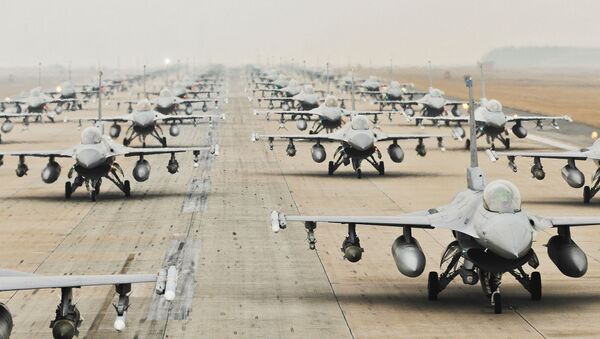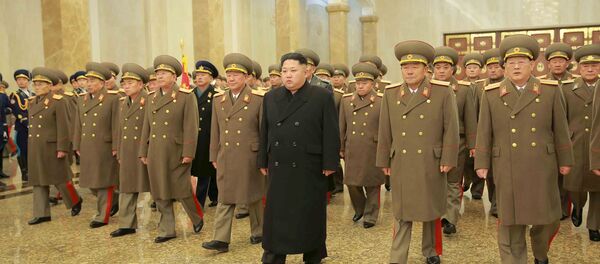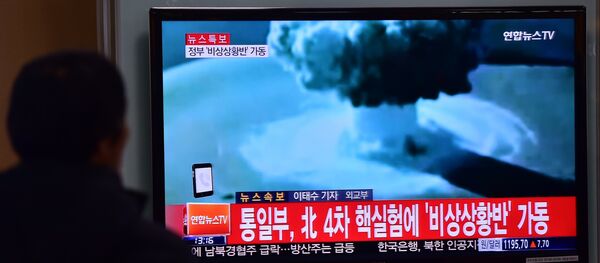"If Pyongyang continues building and testing nuclear bombs," the analyst explained, "Beijing is going to wake up one day and find that its neighbors, South Korea and Japan, have also acquired nuclear weapons as deterrents to North Korea. And should Japan and South Korea do so, Taiwan, Vietnam and [the Philippines]," each of which has its own conflict with Beijing, "may also be in the market for nukes."
As far as the test's implications for America's security are concerned, Buchanan suggested that the US can only stand to benefit by "tak[ing] a hard look at our own war guarantees to Asia," which date back to the Cold War era.
"At the end of the Korean War in July 1953, South Korea was devastated, unable to defend herself without the US Navy and Air Force and scores of thousands of US troops. So, American negotiated a mutual security treaty."
"But today," the analyst noted, "South Korea has 50 million people, twice that of the North; the world's 13th largest economy, 40 times the size of North Korea's; and access to the most modern US weapons. In 2015, Seoul ran a trade surplus of almost $30 billion with the United States, a sum almost equal to North Korea's entire GDP."
"Why, then, are 25,000 US troops still in South Korea?" Buchanan asks. "Why are they in the DMZ, ensuring that Americans are among the first to die in any Second Korean War?"
"Why should a treaty that dates back 60 years commit us, in perpetuity, to back South Korea in a war from the first shot with Pyongyang, when that war could swiftly escalate to nuclear? How does this comport with US national interests?"
In the case of North Korea and elsewhere around the globe, Washington, Buchanan argues, should "reconsider strategic commitments that date back to the 1950s."
"President Nixon, ahead of his time, understood this. As he began the drawdown of US forces in Vietnam in 1969, he declared in Guam that while America would meet her treaty obligations, henceforth, Asian nations should provide the ground troops to defend themselves."
Today, Buchanan notes, "now that we have entered a post-post-Cold War era, where many Asian nations possess the actual or potential military power to defend themselves, something like a new Nixon Doctrine is worth considering."
As far as the territorial disputes between China and its neighbors in the East and South China Seas are concerned, Buchanan notes, "in none of these quarrels and conflicts does there seem to be any vital US national interest so imperiled that we should risk a clash with a nuclear power like Beijing."
This, Buchanan notes, includes the NATO alliance. "One understood the necessity to defend West Germany and keep the Red Army on the other side of the Elbe, but when did Estonia's independence become so critical to US security that we would fight a nuclear-armed Russia rather than lose it?"
"Indeed, how many of the dozens of US war guarantees we have outstanding would we honor by going to war if they were called?" the analyst asks.
A veteran political commentator, columnist, and writer, Pat Buchanan is also the former White House Communications Director for the Reagan Administration, and a former Republican Party presidential candidate.





